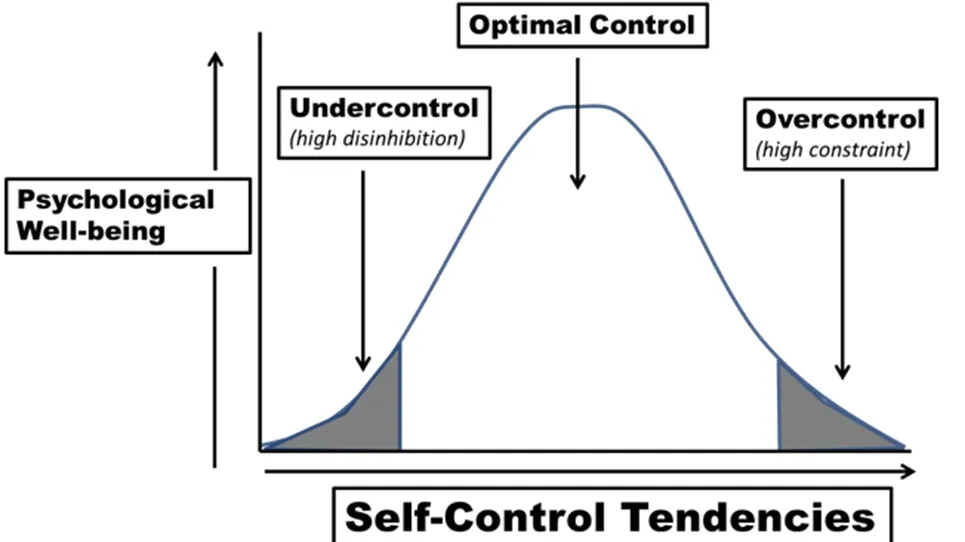What is RO DBT (Radically Open Dialectical Behavior Therapy)?

Radically Open Dialectical Behavior Therapy (RO DBT) is an evidence-based treatment for those who tend to cope with their emotions with excessive self-control. While self-control can be a good thing, research indicates that too much control can impair functioning, especially in social relationships. Those who are overcontrolling have the tendency to struggle with flexibility and changes that are necessary in maintaining a healthy mindset and strong relationships.
RO DBT has helped those who struggle with any or all of the following:
- Delay of gratification
- Rigid behavior
- Generating extreme rules, such as restricting eating
- Difficulty adjusting to changing circumstances
- Avoiding the expression of emotions
- A hyper-focus on perfection and achievement
- Difficulties with intimacy and feeling connection
- Self-injury or suicidal ideation
- Isolation
- Excessive bitterness
RO DBT incorporates crossroads of the essentials for emotional well-being: being open, being flexible, and being socially connected. But RO DBT is more than mindful awareness. It means looking for areas of life that we may find uncomfortable or try to avoid, and treat them as a learning opportunity. It’s important for individuals using RO DBT to purposefully self-inquiry and be comfortable with being wrong, which provides the opportunity to establish stronger social bonds.
How does RO DBT work?
RO DBT is crafted based on strong research that studies the functional facilitation and communication of social connection and building close bonds. The concept is that “bio-temperamental” differences and experience combine to lead those who are overcontrolling to behave in a manner that interferes with the process of forming close bonds, which can result in isolation and distress. Bio-temperament is a genetic and biological precursor that moderates perception and regulation of emotion both pre-consciously and consciously.
The focus is changing social signals, which allows emotional expression to become more appropriate for social contexts. Better emotional expression results in more trust and the desire to interact with others, which increases social connection.
The Problem with Overcontrol (OC)
Individuals who are overcontrolling are usually quite serious about life, and they have high personal standards. They work hard, usually behave appropriately, and sacrifice personal needs to achieve goals or assist others. But people tend to feel like they're missing out on things, and might find it difficult to connect with other groups. Some evidence suggests those with overcontrolling tendencies can have chronic health issues, depression, anorexia nervosa, etc.
Overcontrol is not a single trait; it is a combination of traits that converge. Some will have more traits, or different traits, than others. But many overcontrolled people have a few things in common:
- They feel lonely and don’t have a sense of belonging. The individual may have many friends, but there is a feeling that none of those friends really understand who they are. There is also the possibility that they feel different from others and tend to avoid any social situation.
- There is a tendency to mask their emotions. There may sometimes be the tendency to express emotions that aren’t proper in the context of the situation. This may include a flat expression when another is expressing excitement or enthusiasm, not expressing sadness or distress when another is upset, or laughing at something that others may not consider funny.
- Feedback is difficult, and they are frequently governed by rules. Overcontrolling individuals are hesitant to try new things and are usually closed off to experiences--especially if there is uncertainty and unplanned risks. They have the tendency to have a defensive knee-jerk reaction if they receive critical feedback, or they may avoid feedback altogether to avoid the pain of it.
If overcontrol is not addressed, it often leads to poor interpersonal relationships and difficulties coping with changes in environment and circumstances, which can lead to loneliness, depression, and other similar problems. There is also evidence that those with chronic mental health problems like depression and anorexia nervosa often have untreated overcontrol, which includes cognitive rigidity, a strong need for structure, strong self-criticism, rigid self-expectations, a strong fear of mistakes, excessive control of spontaneous feelings, and maladaptive perfectionism.

What is Radical Openness?
One of the cornerstones of DBT is Radical Acceptance, which is the concept of letting go of fighting reality. Radical Openness, however, is not the same as Radical Acceptance. It focuses on challenging our perceptions of reality
RO-DBT and Radical Openness have three concepts:
- The acknowledgment that stimuli are confounding, disconfirming, and unexpected. This often leads to distress of emotions that are unwanted. This is in contrast to the notion that overcontrolling individuals often explain, defend, accept, regulate, or deny stimuli and reality to feel better or comfort themselves.
- Inquiry of the self, such as asking oneself the right questions to learn more about the unknown and how to cope with a constantly changing environment.
- Being flexible by doing the most effective thing in the moment, and using humility while taking the needs of others into consideration.
How is RO DBT different from DBT?
Dialectical Behavioral Therapy (DBT) is geared around helping individuals with Borderline Personality Disorder, as they find it difficult to delay gratification and struggle with emotional dysregulation. Those who benefit from RO DBT face very different issues. Their bio-temperament often makes them avoidant, especially when they need to express negative emotions. Bio-temperament deals with the preconscious and conscious ways in which individuals process sensory input.
RO DBT involves actively questioning biases, habitual responses, and preconceptions to help block automatic responses that function to regulate, avoid, accept, regulate, or defend oneself. It is the refusal to accept what is that creates suffering, and that is the goal of RO DBT. It argues that we are not able to see things as they are, but rather we see things as we are. There is a great deal occurring that an individual can’t see.
How Can RO DBT Help Your Daughter?
Radically Open Dialectical Behavior Therapy (RO DBT) is highly effective for those who struggle with overcontrolling tendencies.
Is your daughter a perfectionist? A planner? Do people who do not know her well think she is aloof? People may see that she works hard to stay in control. They probably don’t know the strain that staying in control puts on her.
All that effort to stay in control comes at a cost. Your daughter lives her life, always feeling threatened. Her need to be in control keeps her from enjoying life. She has trouble feeling a sense of social connectedness.
Your daughter may have an overcontrolled personality type. Her drive for perfectionism may compel her to maintain excessive self-control. This need for self-control could lead to mental health problems that inhibit your daughter’s long-term well-being.
RO DBT is a treatment option that could help your daughter.
Luckily, Discovery Ranch South is here to help. We are aware that your daughter may benefit from RO DBT, and have the programs available to teach her coping skills so she can be successful now and in the future. RO DBT can help her develop healthier relationships with others.
Contact our team to learn more, and start giving your daughter the assistance she needs.
About the Author: Rashell Stubbs, LCMHC

Rashell has been with Discovery Ranch South since 2017 and became Assistant Clinical Director in 2021. Prior to joining the Discovery Ranch South team Rashell worked with adolescents since 2005 as a residential staff and therapist. Rashell graduated from the University of Phoenix with a Master’s Degree in Mental Health Counseling in 2008. She has worked primarily with adolescents during her career.
She has experience working with youth who experience depression, anxiety, attachment challenges, trauma, and those with Autism. Rashell has completed the Level 1 Intensive Training for Radically Open DBT, and Phase 1 of Brainspotting. Rashell currently leads the RO DBT group and a Horsemanship Group.
Rashell loves working at Discovery Ranch South. She loves to see the healing of the students and families. She is grateful and appreciates the opportunity to be a part of this process in the lives of students. Rashell’s background includes riding horses and raising livestock. Naturally one of her favorite things about Discovery Ranch South is the calf and equine program.
Rashell is married, has three daughters and a dog, Posh, who comes to work with her each day. Outside of life at Discovery Ranch South, you will find Rashell spending time with her family at their cabin, on the lake, golfing or hiking in the many places that Southern Utah has to offer.
